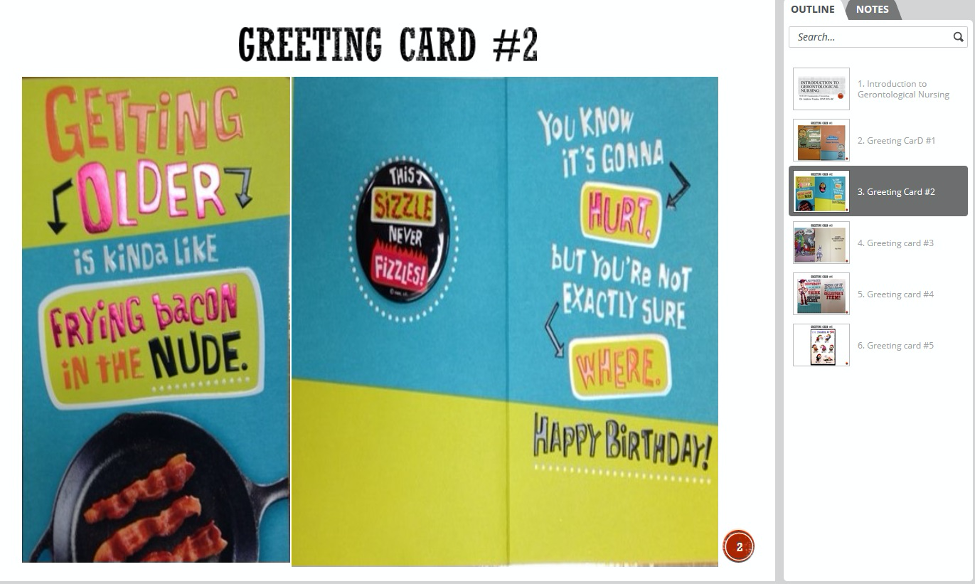Ageism is a term that was coined in 1969 after the passage of the Federal Discrimination in Employment Act. It is a broad term that generally isolates and discriminates the older population. Ageism can vary by addressing older people in a condescending manner by using simple words and loud voices (implying hearing loss) or through the use of particular jokes and adjectives. Ageism believes that the elderly are a group which is non-progressive, stuck in past traditions, and are unable to adapt in the modern technological world.
This is relevant both in terms of lifestyle and employment (Friend, 2017). However, ageism is unique because it targets a group of people that transition into this population demographic and it is ironic because all human beings are eventually going to age.
Many greeting cards demonstrate ageism by implying that age has its negative impacts on health, memory, and decreased lack of function in various aspects of life.

Greeting card #2 demonstrates ageism by targeting elderly health. The implication is that one’s body will begin hurting in so many places that it will be hard to determine where. Although a lighthearted joke with a comparison to cooking bacon, it is detrimental since health is a genuine issue for the population. Even for the elderly, the quality of life can be improved if their health is well. Therefore, society should support it instead of merely accepting and making fun of natural deterioration of the human body.
Ageism is commonly seen on television. For example, a Chevy Senior Citizens commercial of 2011 demonstrates ageism by conclusively showing the stereotype of the elderly as having problems with hearing and lacking understanding of modern technology. Furthermore, it seems to imply that this population has outdated perspectives and difficult attitudes.
Ageism is an inherent part of marketing because of various segmentation and society is attracted more to “youth” and modern trends. Ageism differs amongst generations due to the rate of the technological growth. The digital age has created its own culture in a sense which is not inclusive of the elderly population (Kemp, 2016). Therefore, both in marketing and employment, the amount of time it takes to “become old” is significantly less than in previous generations.
References
Friend, T. (2017). Why ageism never gets old. The New Yorker. Web.
Kemp, N. (2016). Why ageism is adland’s next frontier. Campaign. Web.